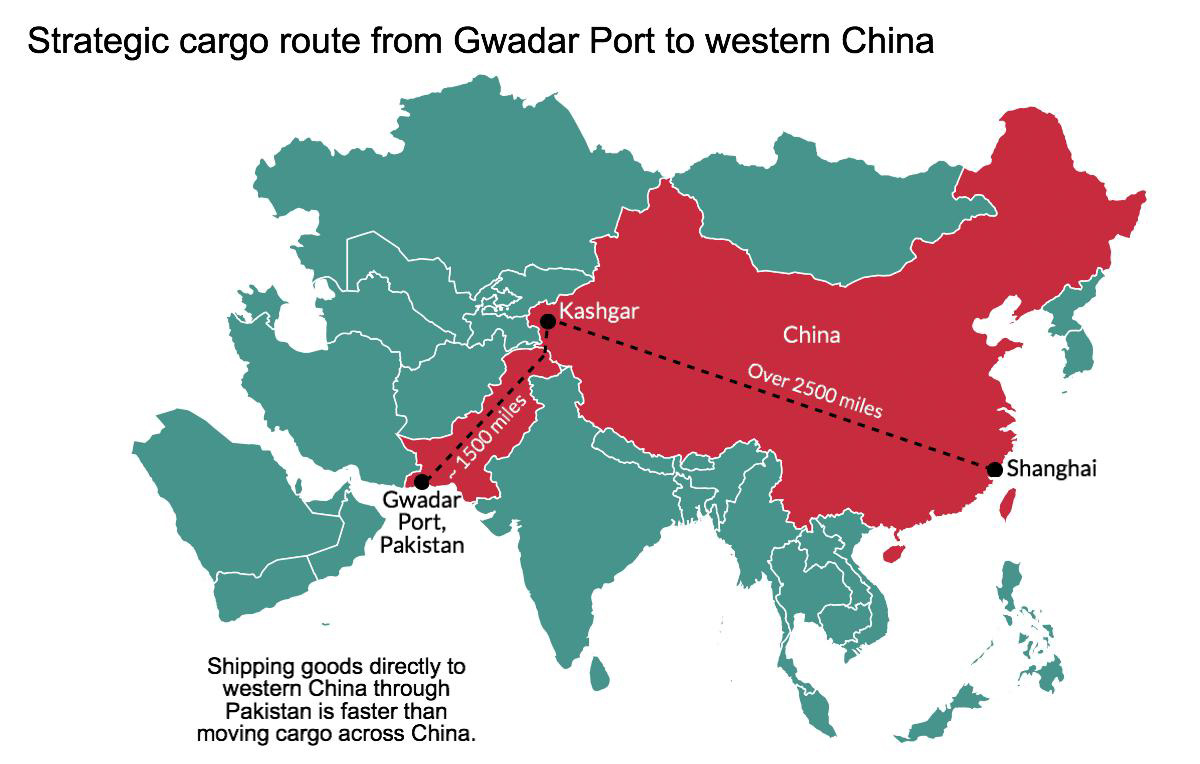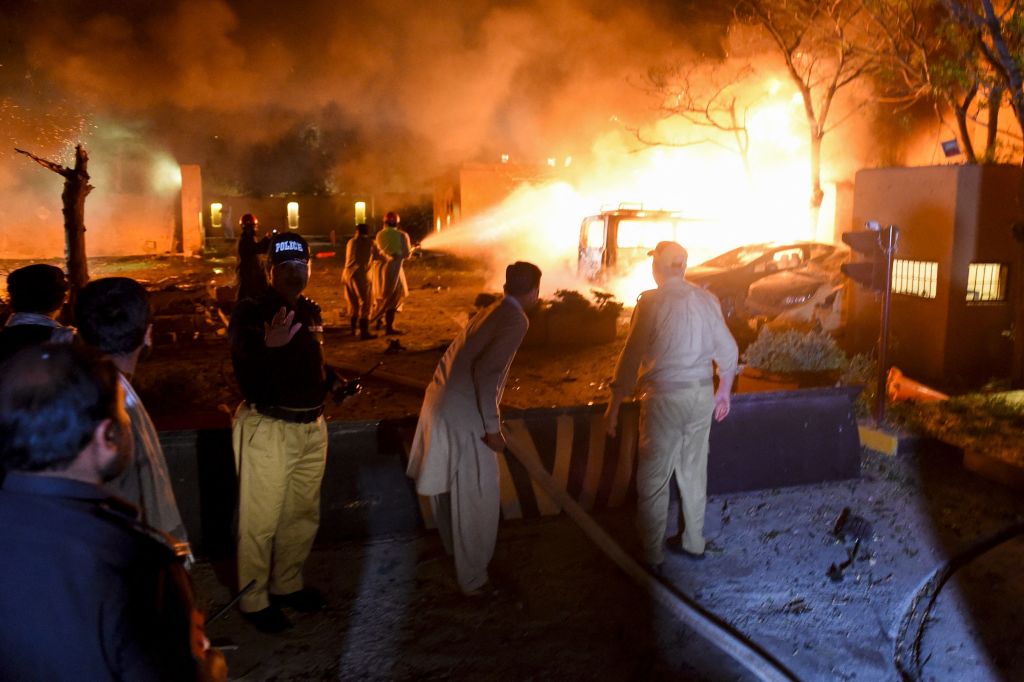) Pakistani Taliban's 'shadow province' threatens China BRI projects
Pakistani Taliban's 'shadow province' threatens China BRI projects
Extremist group aims to create parallel government in conflict-wracked Balochistan.
Gwadar Port is the heart of the $50 billion China-Pakistan Economic Corridor, the Pakistani component of Beijing's globe-spanning Belt and Road Initiative.
 ISLAMABAD -- The Pakistani Taliban's new drive to control the country's south threatens to be a "huge problem" for reviving multibillion-dollar infrastructure projects under China's Belt and Road Initiative (BRI), analysts say.
ISLAMABAD -- The Pakistani Taliban's new drive to control the country's south threatens to be a "huge problem" for reviving multibillion-dollar infrastructure projects under China's Belt and Road Initiative (BRI), analysts say.
Last week, Tehreek-e-Taliban Pakistan (TTP), a collection of militant Islamist groups, announced that it was establishing a "shadow province" in the southwestern province of Balochistan. The region, home to the BRI's port city of Gwadar, has been the scene of a low-level separatist insurgency for nearly two decades, with Chinese interests targeted for attacks. In the TTP's bid to create its "Kalat-Makran" province, the terrorist group will try to establish a parallel government in a region covering about 40% of Balochistan's area, including a 760-kilometer coastline. Last year, the group established another shadow province in Balochistan's north, which is mostly inhabited by Pashtuns, an ethnic group that accounts for the bulk of the TTP's members and senior leadership.
In the TTP's bid to create its "Kalat-Makran" province, the terrorist group will try to establish a parallel government in a region covering about 40% of Balochistan's area, including a 760-kilometer coastline. Last year, the group established another shadow province in Balochistan's north, which is mostly inhabited by Pashtuns, an ethnic group that accounts for the bulk of the TTP's members and senior leadership. The announcement comes less than a month after TTP militants stormed a production facility for natural gas and oil in northwest Pakistan, killing half a dozen police and security guards. The TTP is known for repeated attacks inside Pakistan but does not formally control any territory.
The announcement comes less than a month after TTP militants stormed a production facility for natural gas and oil in northwest Pakistan, killing half a dozen police and security guards. The TTP is known for repeated attacks inside Pakistan but does not formally control any territory. "Beijing has made its new investment in Balochistan conditional with security guarantees, and the emerging threat from TTP will be a huge problem," said Kiyya Baloch, an independent analyst who studies security issues and the region's cycle of violence.
"Beijing has made its new investment in Balochistan conditional with security guarantees, and the emerging threat from TTP will be a huge problem," said Kiyya Baloch, an independent analyst who studies security issues and the region's cycle of violence.
This month, China hosted trilateral talks with Pakistan and Iran on counterterrorism and security, reportedly focusing on the deteriorating security situation in Balochistan.
But Prime Minister Shehbaz Sharif, who came to power last year, is moving to revive CPEC projects in the midst of an economic crisis punctuated by soaring inflation and dwindling foreign exchange reserves.
The government "is making concerted efforts to revitalize CPEC as a means to revive the economy of Pakistan. The new shadow province of TTP will hurt these plans," said Khuram Iqbal, a counterterrorism expert at Australia's Macquarie University.
In the past year, four Baloch Islamist groups have joined the TTP and it has boosted propaganda efforts with videos and statements urging residents in the impoverished province to join its ranks.
The new shadow province may be an attempt to mimic the Taliban's largely successful drive to run a parallel government in Afghanistan before it retook control of the country in 2021, said Abdul Basit, a research fellow at the S. Rajaratnam School of International Studies in Singapore.
"TTP is diversifying its network for strategic gains by establishing a new shadow province in Balochistan," he told Nikkei Asia.
The mooted region also covers a 400-km border with Iran, and intensified attacks could scuttle Pakistan's plans to boost crucial energy imports from its neighbor, according to analysts.
But the threat to new Chinese investment could be the biggest concern. Regional separatist groups have launched deadly attacks on Chinese citizens and business interests for years, including a 2018 attack on the Chinese Consulate in Karachi and a suicide bombing last year that killed three Chinese academics and their local driver.
It is unclear how the TTP Islamist militants will coexist with left-wing Baloch separatist militants in the newly established shadow province. But both have a common enemy in the form of Pakistan's federal government, while the separatists also have a history of coexisting with the Islamic State group, analyst Baloch noted.
"If Baloch separatists can coexist with Islamic State, then they can also do the same with TTP," he added.
Any collaboration between the militant groups in future attacks could further strain the cash-strapped Pakistani government's counterterrorism efforts.
"Pakistan not only needs the support of China, but also of other regional power players to contain the security threats emerging from TTP's new shadow province," said Fakhar Kakakhel, an independent analyst specializing in militancy in Pakistan.







No comments:
Post a Comment
Note: Only a member of this blog may post a comment.